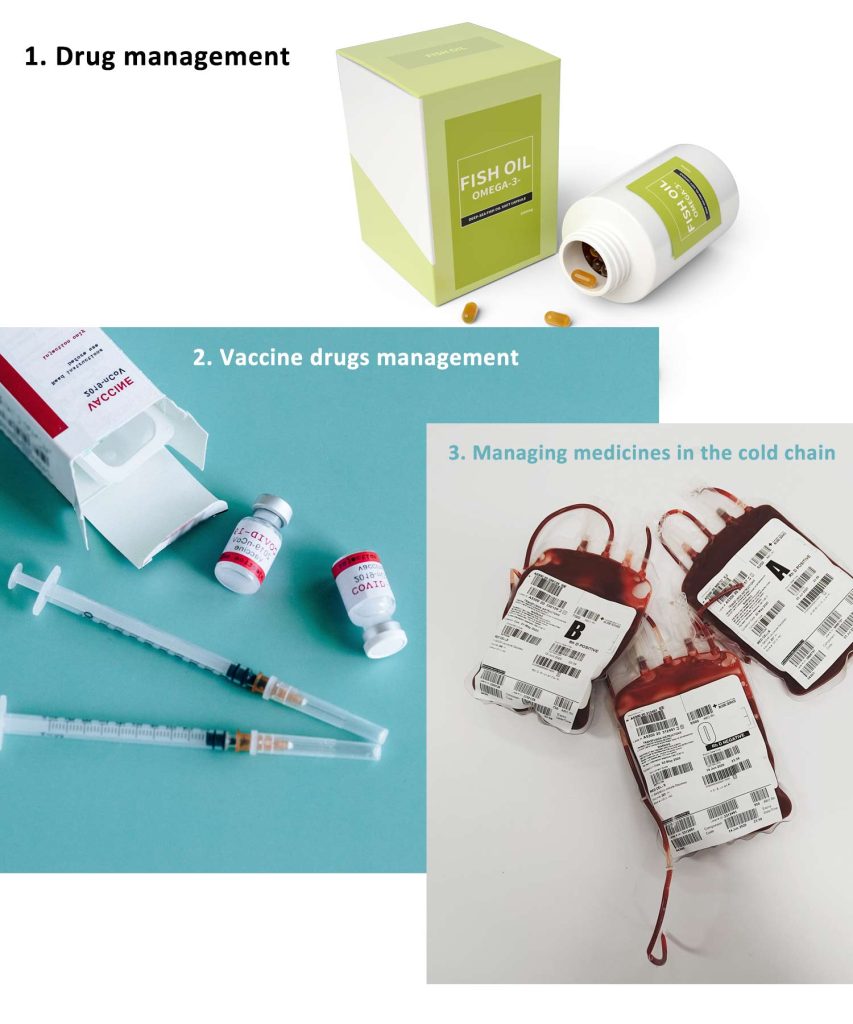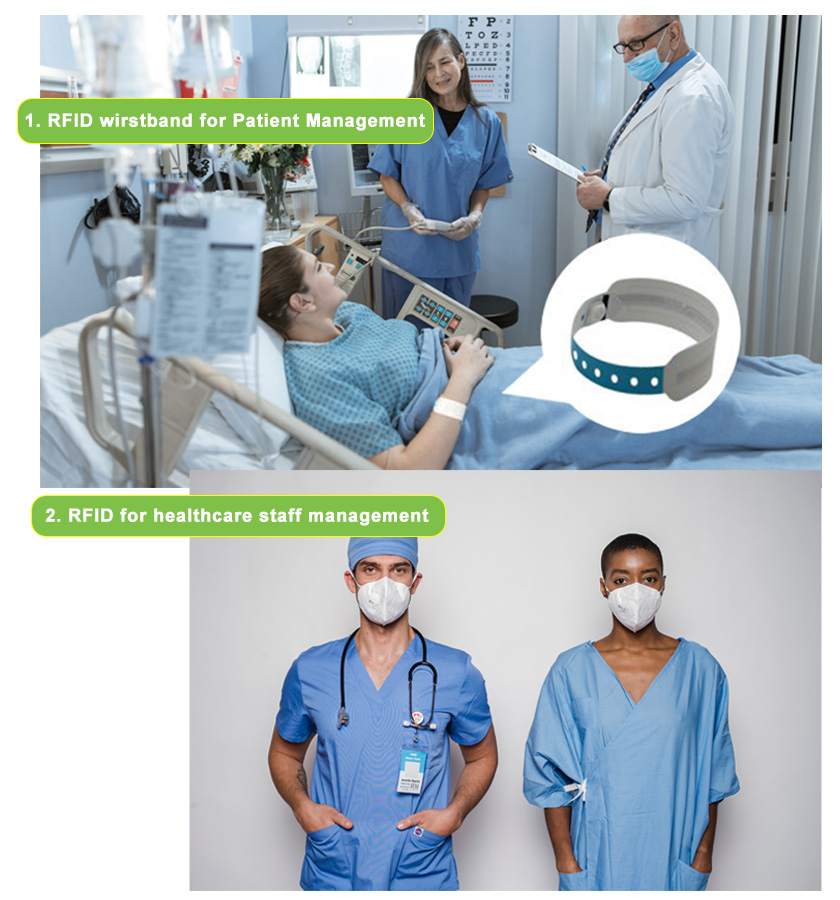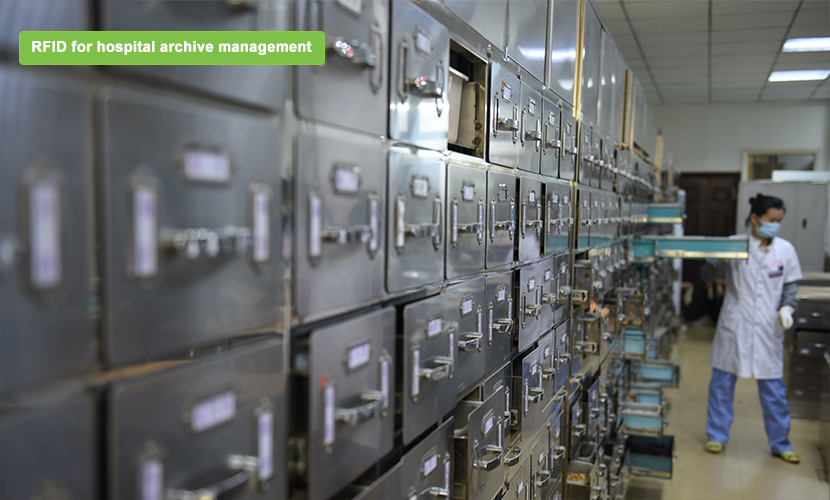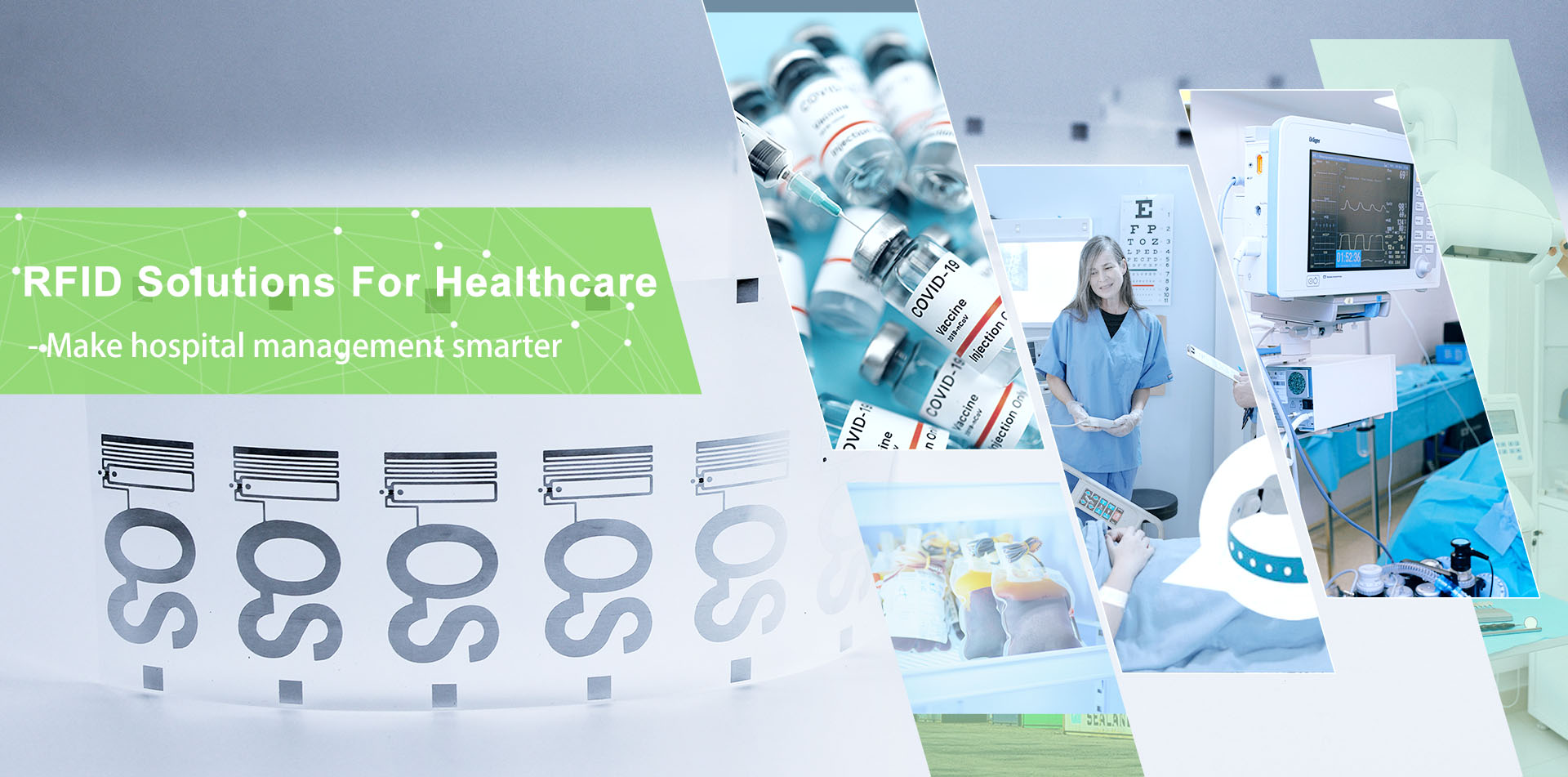1. Why RFID in healthcare?
- Unique ID data labeling for drugs can effectively combat the circulation of counterfeit drugs.
- Efficient tracking and management of hospital assets can prevent shortages of assets that can lead to medical accidents.
- Efficient management and tracking of all populations in the hospital setting.
- Effective monitoring of the flow of medical assets and the spread of pollutants.
- By integrating hospital data into the cloud through RFID technology, the efficient operation of hospitals can be effectively monitored and managed.
2. RFID Tags For Healthcare Applications
OSRFID can provide a complete set of RFID tag solutions for the healthcare industry, enabling hospitals to track and monitor all assets and personnel data. From medical drugs, medical equipment, high-value consumables, to hospital personnel management, OSRFID can customize RFID tags for corresponding scenarios. In the following, OSRFID has summarized the tags required for various scenarios in the healthcare industry, which can serve as a reference for your procurement.
[ Tips ]
OSRFID is a Chinese manufacturer with over 20 years of experience in the RFID industry, specializing in R&D of RFID inlays and tags. Our RFID labels have been exported to the world.
To explore more about our products, please download the lists below or contact us.
3. Why Choose OSRFID?
- Provide over 1000 Millions RFID labels each year
- Offer custom designs of RFID tags on demand
- Over 20 years RFID industry experience with in
- House strong R&D capabilities
- Well equipped 6000 SQM dust-free workshop
- Professional RFID healthcare solutions brand
II. RFID In The Management Of Healthcare Assets
Hospital asset management mainly includes several categories: drug management, equipment management, and surgery management.
1. RFID for Drug Management
(1). Conventional Drugs
RFID tags can achieve tracking and inventory management of drugs. Hospitals can quickly enter drug information into the system through RFID technology to count drug usage and inventory status, avoiding the low efficiency and errors of manual data input and better ensuring patient medication safety. RFID tag data can be affixed to the drug container, and the reader can be placed in critical locations in the hospital. This enables relevant personnel in hospital management work to achieve real-time tracking of drugs, ensuring that the right patient receives the right medication at the right time.
→ The RFID tag recommended by OSRFID for conventional drug boxes is: [Antenna 1027mm U8; Antenna 2212.5 R6P].
(2). Small Tags for Vaccine Drugs
OSRFID is developing a super-small NFC tag that can be affixed to the bottom of drugs. The size of the tag can be customized, and the smallest can be customized into a circular tag with a diameter of 0.8 millimeters affixed to the bottom of vaccine glass bottles, with liquid-resistant characteristics. For specific parameters, consult OSRFID’s technical experts.
→ The RFID tags recommended by OSRFID for other conventional drugs is: [Circular 8mm FPC; Circular 12mm Aluminum Antenna-ST25TV02KC].
(3). Drugs That Need To Be Stored At A Specific Temperature
Other special drugs, such as blood products, low-temperature drugs, and frozen drugs, need to be maintained at a specific temperature to ensure that the drug’s efficacy is not altered. OSRFID recommends the use of RFID temperature measurement tags affixed to these types of drugs for easy tracking and recording of drug temperature changes.
→ The RFID tags recommended by OSRFID is: [Test tube tag-Antenna 4015mm U8 (33851); Blood bag tag-Antenna 4545mm ICODE SLIX (23795)].

III.Personnel Management
In hospitals, there are two categories of people: patients and medical staff.
1.Patient Management
RFID technology can be used for automatic identification and positioning of patients. RFID tags can be attached to the patient’s wristband, allowing doctors and nurses to quickly and accurately identify patients. This facilitates analysis and diagnosis of the patient’s condition, improving the effectiveness of treatment. This helps to prevent medication errors, reduce the risk of misdiagnosis, and ensure that patients receive the correct treatment. RFID tags applied to patients are generally made of Thermal paper, with an RFID chip and antenna embedded inside. Thermal paper tags are disposable, waterproof, and can be easily discarded. RFID technology can also be used to track patient activity within the hospital, allowing doctors and nurses to monitor their movements and ensure that they receive timely care, reducing the risk of getting lost. This is especially useful for hospitals that need to transfer patients from one department to another for examination or surgery.
→ The recommended RFID tags by OSRFID is: specifically the OS1106-MR6p.
2.Medical Staff Management
If hospitals want to improve their operational efficiency, medical staff also need to be efficiently mobilized, and medical RFID technology is required. RFID tags can be attached to the ID badges of internal hospital employees, allowing hospital information management personnel to track the movements of medical staff in real-time. This helps to ensure that medical staff appear at the right place at the right time and can be deployed to areas where they are most needed, especially in the event of major casualties. Through RFID technology, medical staff can be mobilized in a timely manner to participate in rescue efforts.
→ The recommended RFID tags by OSRFID is: the UHF employee cards.

IV. Record Management
Hospital records are mainly divided into two categories: patient medical records and medical data records. The application of RFID technology can also help hospitals automate case management. Hospitals can use RFID technology to digitize and accurately record medical records, making it easier for medical staff to quickly search and compare medical record information. Some hospitals may also use RFID light-up tags to mark records for easy location. Conventional book tags can also be used.
→ The recommended RFID tags by OSRFID is: the OS0395 and OS0395-KX2005XBL tags.









